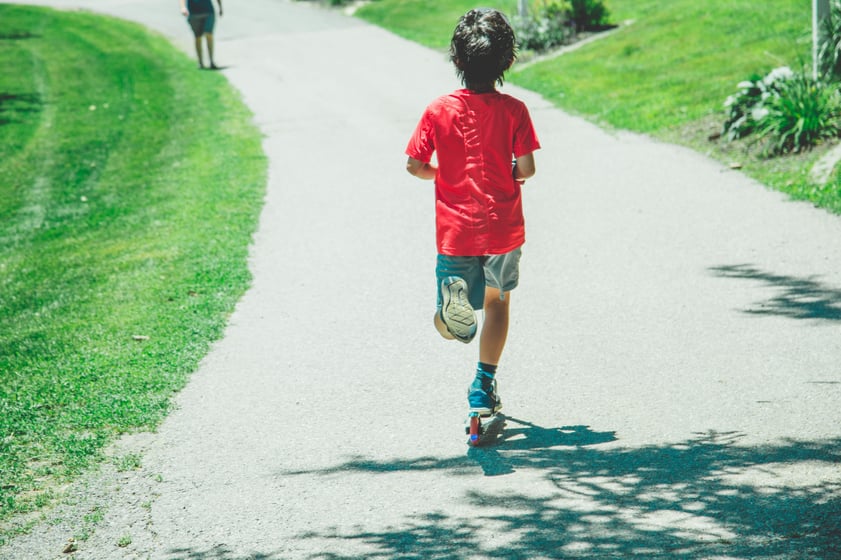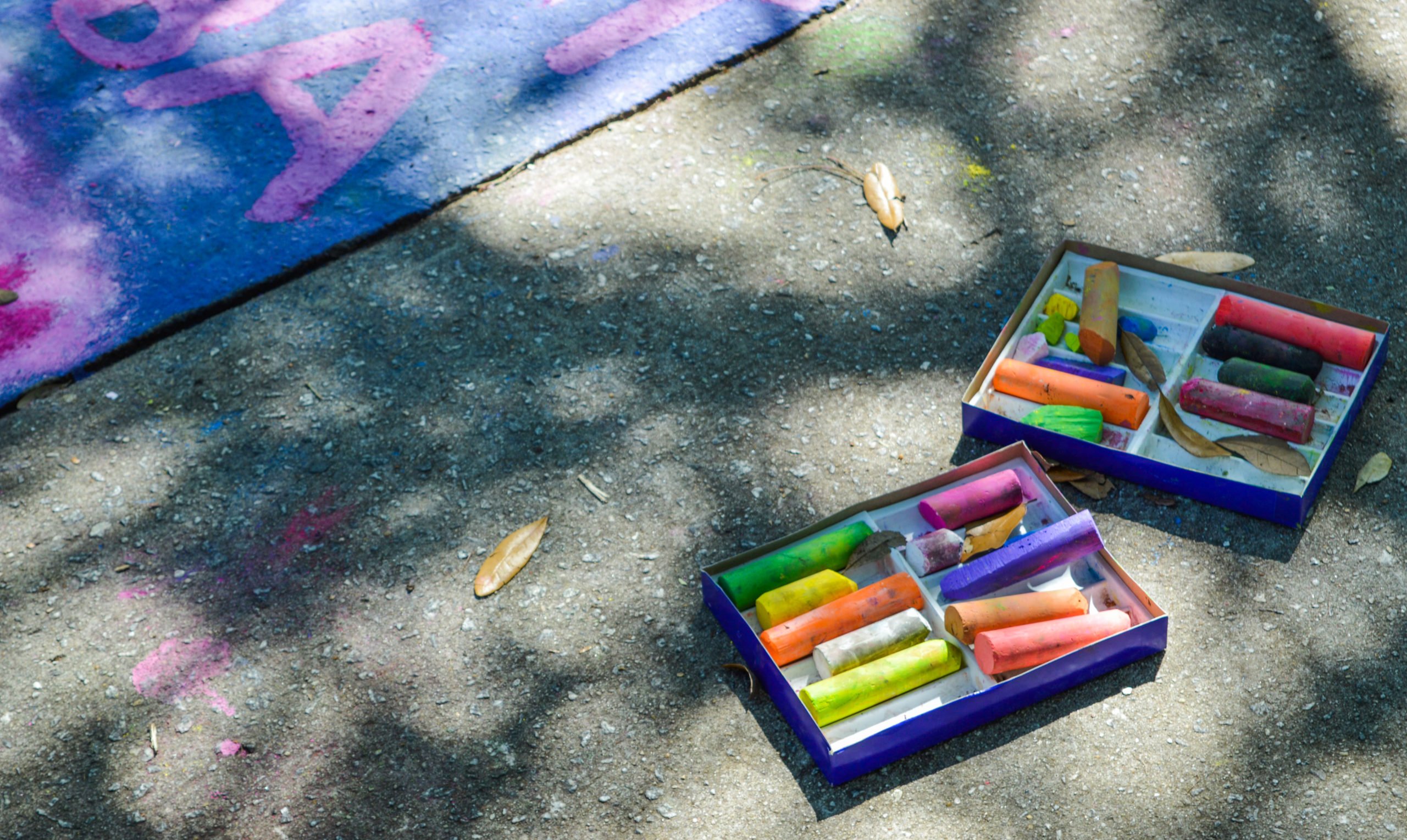These last few months have been many things: different, challenging, unexpected, and unpredictable. But there have also been many positives: more time for connection, more simplicity, less hectic schedules, the ability to focus on family, and more. Throughout this time, golf has been a bit of an unknown.
As we begin to return to what will be new normal for a while, golf seems to be one of the areas where we could enjoy a small sense of normalcy (yay!). But with that, we still don’t know exactly what this will look like or exactly what it means. And just because your local government says it’s safe to get on the course, you might not be confident that the timing is right.
All of this may be a challenge for your young golfer to understand, especially when they’re in a stage of all-or-nothing thinking (as in, “Someone says golf is safe?! Where are my clubs!?”). But getting together with their normal foursome this Summer and doing many of the activities they’ve been looking forward to getting back to may not be possible, at least not the way they used to just yet.
As we go into these next few months, consider how you mentally approach this time. These reminders are helpful for parents and golfers for handling the many unknowns for the immediate, short-term, and long-term.
A willingness to be flexible
Flexibility can be a challenge even in the best of circumstances. Right now, it can feel like we’re having to be flexible daily, and this will continue. We can make plans or have hopes that certain things will happen, but nothing is certain so consciously reminding ourselves that we are both willing and able to be flexible can help us get through the next few months of not quite knowing what will happen with golf (and other areas of life).
An attitude of gratitude
Despite the challenges, there is still so much to be thankful for. Taking time daily to reflect on the positives is helpful for parents and kids. As we shift into more of our “normal” lives, there are likely to be changes, new regulations, and potential closures again. If we focus on these, we may miss opportunities to be grateful for what we have access to, and what we are able to do.

Practically Approaching Summer
Plan A, Plan B, and maybe Plan C
You might already have had to cancel plans like spring break trips or visits to colleges. That was plan A. Maybe Plan B was that you’d do those in the summer. At this point, you might need a Plan C. This relates to being flexible but requires applying it in a practical way. As you start to make plans or revisit what’s coming up in the summer, consider what your back-up will be: If your junior golfer was planning to get volunteer hours or had an internship scheduled, can they work with that organization in a virtual capacity? If they planned to go to camp, find out what the camp’s plans are, and if that falls through, consider your options. Maybe this is a time where your athlete can explore other interests (assuming those can happen in a safe way). If summer tournaments are looking less likely, then start looking to the fall and keeping things local this year. Start thinking now about the backup plans and get your kids involved in figuring out the options- this will help them be on board if plans have to change.
Create Routines, and Include Family Time
When there is uncertainty, your routines and schedules provide consistency and that can help create a sense of calm and safety. You might have routines during the school year (that you adapted for distance learning) but these will now need to be adjusted for summer. Consider still including time spent on reading, remote learning in an area of interest, or taking some fun online classes. Hopefully golf will be part of the routine!
This is also a great time to schedule in family activities and make the most of this time you have with your kids. Before you know it, your junior golfer could be off to college, and this can be a time they look back on fondly. Consider how you can spend your family time, whether that’s cooking together, having movie nights, board game tournaments, or handing the reigns over to your kids and letting them plan a fun evening.
Though there is still a lot of unpredictability in general, and specifically around golf, we still have control over our attitude and in many ways we can still control our time and our activities. Remember that this next phase of life may still be hard for your junior golfer so consider checking in with them regularly to see how they’re doing and support them to find ways to exert some control in this time of unpredictability.

Give these creative ways to create memories with your family a try this summer:
- Host a cooking night with an unexpected theme (like tiny foods, foods only one color, or that start with a certain letter)
- Play “Pre-shot routine HORSE”: Set up an indoor putting hole and add a fun pre-shot routine. The next person has to follow it and tries to sink the shot; follow the rules of traditional HORSE
- Do a Walk and Chalk: walk around your neighborhood, leaving nice messages and friendly images for neighbors
- Do a camp out: Head to the backyard for camping under the stars (don’t forget the S'mores!)
- Take virtual campus tours. Don’t let distance deter you - visit any and all campuses your golfers have an interest in. This is a great time to discover lesser-known schools
- Become pen pals (with each other): Pair up and write letters back and forth to each other
- Create a miniature golf course at home- get as creative as you can
- Have a movie night: pick a movie everyone might like, pop some popcorn, grab some snacks and drinks, and enjoy with the best seats in the house
- Find a family hobby - maybe you all want to try learning a language together, take online art lessons, or can start a book club
- Put your kids in charge to plan the day (you can give a few parameters)
Written by Sara Robinson, MA
 Sara Robinson, MA, has worked as a Mental Skills Coach for over a decade. She has worked with recreational and competitive athletes, ages 7 to adult, in just about every sport. She consults with individual athletes and teams, as well as presents to coaches and parents about mental skills to best support their athletes. Sara believes every athlete and performer can benefit from mental skills training. In addition to consulting, Sara is a freelance writer, and is a former faculty member for John F. Kennedy University’s Sport Psychology Department. She is an editor and author for the book Excelling in Sport Psychology: Planning, Preparing, and Executing Applied Work and author of Self-Care for Moms and Choose You: A Guided Self-Care Journal.
Sara Robinson, MA, has worked as a Mental Skills Coach for over a decade. She has worked with recreational and competitive athletes, ages 7 to adult, in just about every sport. She consults with individual athletes and teams, as well as presents to coaches and parents about mental skills to best support their athletes. Sara believes every athlete and performer can benefit from mental skills training. In addition to consulting, Sara is a freelance writer, and is a former faculty member for John F. Kennedy University’s Sport Psychology Department. She is an editor and author for the book Excelling in Sport Psychology: Planning, Preparing, and Executing Applied Work and author of Self-Care for Moms and Choose You: A Guided Self-Care Journal.

